
Friedrich Spitta (11 January 1852 – 7 June 1924) was a German Protestant theologian.

Friedrich Spitta (11 January 1852 – 7 June 1924) was a German Protestant theologian.
Spitta was born at Wittingen, Lower Saxony, the son of German hymn writer Karl Johann Philipp Spitta and brother of Philipp (music historian and musicologist best known for his biography of Johann Sebastian Bach). Friedrich studied at the universities of Göttingen and Erlangen, where he was a pupil of Johann Christian Konrad von Hofmann. [1] In the course of time he became (1887) professor ordinarius and university preacher at St. Thomas, Strasbourg. [2] In 1901 he was appointed university rector. In 1919 he was named a professor at the University of Göttingen. [1]
He had a keen interest in church music and the revival of liturgical life in German Protestantism. He revised a communion song from the early Reformation, "Im Frieden dein, o Herre mein". Most of his books dealt with the Apostles and the early Christian church. [3] In 1896 he became joint editor, with Julius Smend, of the Monatschrift für Gottesdienst und kirchliche Kunst. [4]
Spitta is widely known as the author of a work on the Acts of the Apostles, Die Apostelgeschichte, ihre Quellen and deren geschichtlicher Wert ("Acts of the Apostles, their sources and historical value", 1891). [2] His other works include:

Friedrich Ueberweg, was a German philosopher and historian of philosophy.

Johann Gottfried Eichhorn was a German Protestant theologian of the Enlightenment and an early orientalist. He was a member of the Göttingen School of History.

Johann Nikolaus Forkel was a German musicologist and music theorist, generally regarded as among the founders of modern musicology. His publications include Johann Sebastian Bach: His Life, Art, and Work, the first substantial survey on the life and works of Johann Sebastian Bach.

Johann Friedrich Gmelin was a German naturalist, chemist, botanist, entomologist, herpetologist, and malacologist.
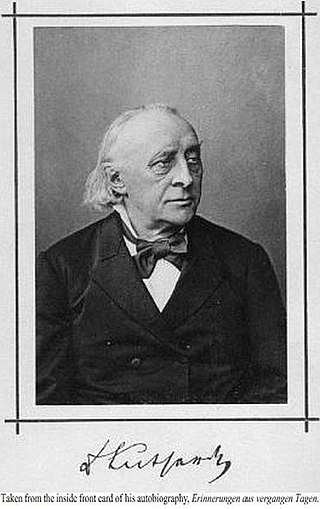
Christoph Ernst Luthardt, was a conservative German Lutheran theologian, Biblical commentator and Christian apologist. He was born in Maroldsweisach, Bavaria.
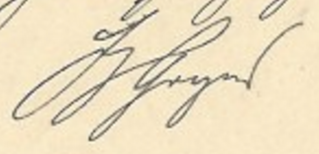
Ludwig Geiger was a German author and historian.
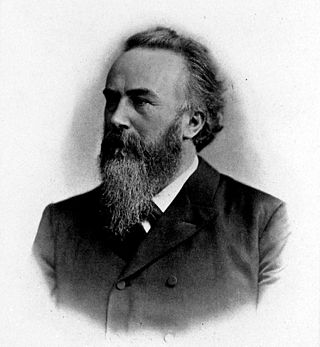
Julius August Philipp Spitta was a German music historian and musicologist best known for his 1873 biography of Johann Sebastian Bach.
Since the 18th century Berlin has been an influential musical center in Germany and Europe. First as an important trading city in the Hanseatic League, then as the capital of the electorate of Brandenburg and the Prussian Kingdom, later on as one of the biggest cities in Germany it fostered an influential music culture that remains vital until today. Berlin can be regarded as the breeding ground for the powerful choir movement that played such an important role in the broad socialization of music in Germany during the 19th century.

Johann Gottfried Vierling was a German organist and composer.

Wilhelm Bousset was a German theologian and New Testament scholar. He was of Huguenot ancestry and a native of Lübeck. His most influential work was Kyrios Christos, an attempt to explain the origins of devotion to Christ as the product of second century Hellenistic forces, and is still the most widely influential academic work on early Christology, even if its conclusions are not supported by modern scholarship.
Julius Smend was a German theologian born in Lengerich, Westphalia. He was a brother to theologian Rudolf Smend (1851–1913) and the father of musicologist Friedrich Smend.

Johann Martin Miller was a German theologian and writer. He is best known for his novel Siegwart, which became one of the most successful books at the time.
Johann Sigismund Scholze alias Sperontes was a Silesian music anthologist and poet.
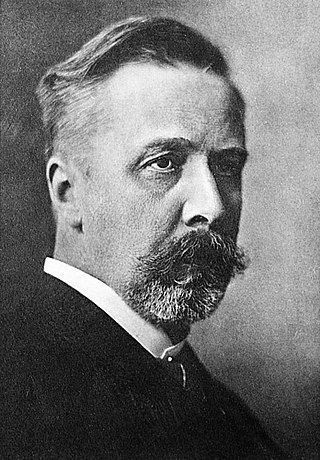
Gustav Heinrich Johann Apollon Tammann was a prominent Baltic German chemist-physicist who made important contributions in the fields of glassy and solid solutions, heterogeneous equilibria, crystallization, and metallurgy.
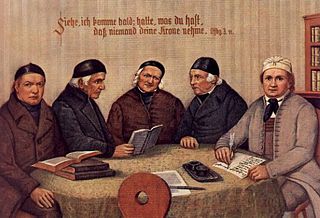
Michael Hahn was a German Pietist, Theosophist and the founder of the Hahn'schen Gemeinschaft. His alleged forename Johann does not appear on his birth certificate.

Karl Johann Philipp Spitta was a German Protestant religious poet.
Christian Heinrich Postel was a German jurist, epic poet and opera librettist, who wrote 28 libretti for the Oper am Gänsemarkt in Hamburg: set by composers such as Johann Philipp Förtsch, Reinhard Keiser and Georg Philipp Telemann. His texts for a St John Passion were set by composers Christian Ritter, Johann Mattheson and Johann Sebastian Bach in their respective St John Passion.
Ludwig Pfandl was a German biographer, Hispanist and Romance studies scholar.

Johann Sebastian Bach: His Life, Art, and Work is an early 19th-century biography of Johann Sebastian Bach, written in German by Johann Nikolaus Forkel, and later translated by, among others, Charles Sanford Terry.

Oskar Fleischer was a German musicologist.